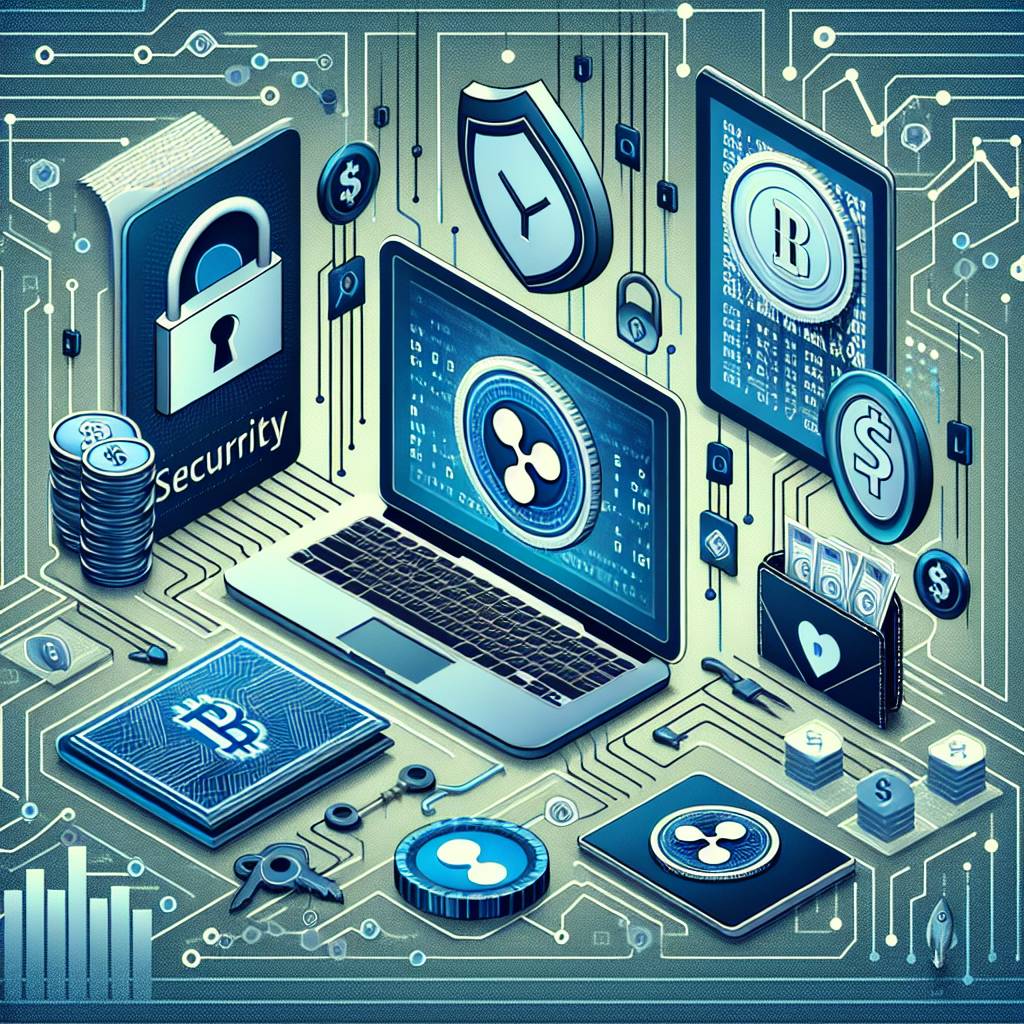How can I secure my cryptocurrency wallet from hacking or theft?
I recently got into cryptocurrency and I'm worried about the security of my wallet. How can I protect it from hacking or theft? What are some best practices to ensure the safety of my digital assets?

3 answers
- One of the most important steps to secure your cryptocurrency wallet is to use a hardware wallet. Hardware wallets are physical devices that store your private keys offline, making it extremely difficult for hackers to gain access to your funds. They provide an extra layer of security by keeping your private keys separate from your computer or smartphone, which are more vulnerable to hacking. Some popular hardware wallet options include Ledger and Trezor. Make sure to purchase your hardware wallet directly from the manufacturer's official website to avoid counterfeit products. Another important aspect of wallet security is to regularly update your wallet software. Developers often release updates that fix security vulnerabilities, so it's crucial to stay up to date. Additionally, enable two-factor authentication (2FA) whenever possible. This adds an extra layer of protection by requiring a second verification step, such as a code sent to your mobile device, when accessing your wallet. It's also essential to be cautious of phishing attempts. Hackers may try to trick you into revealing your wallet's private keys or login credentials through fake websites or emails. Always double-check the URL of the website you're visiting and never click on suspicious links. Be wary of unsolicited emails asking for personal information. Lastly, consider using a strong and unique password for your wallet. Avoid using common passwords or reusing passwords across multiple platforms. A password manager can help you generate and store complex passwords securely. Remember, securing your cryptocurrency wallet is crucial to protect your digital assets. By following these best practices, you can significantly reduce the risk of hacking or theft.
 Nov 29, 2021 · 3 years ago
Nov 29, 2021 · 3 years ago - Hey there! It's great that you're taking steps to secure your cryptocurrency wallet. Here are a few tips to keep your digital assets safe from hacking or theft: 1. Keep your wallet software up to date: Developers often release security patches and updates to fix vulnerabilities. Make sure to install these updates promptly to stay protected. 2. Use a hardware wallet: Hardware wallets are physical devices that store your private keys offline. This makes it nearly impossible for hackers to gain access to your funds. Ledger and Trezor are popular hardware wallet options. 3. Enable two-factor authentication (2FA): 2FA adds an extra layer of security by requiring a second verification step, such as a code sent to your mobile device, when accessing your wallet. 4. Be cautious of phishing attempts: Hackers may try to trick you into revealing your wallet's private keys or login credentials through fake websites or emails. Always double-check the URL of the website you're visiting and never click on suspicious links. 5. Use a strong and unique password: Avoid using common passwords or reusing passwords across multiple platforms. Consider using a password manager to generate and store complex passwords securely. By following these tips, you can significantly enhance the security of your cryptocurrency wallet and protect your digital assets.
 Nov 29, 2021 · 3 years ago
Nov 29, 2021 · 3 years ago - As an expert in the cryptocurrency industry, I can assure you that securing your cryptocurrency wallet is of utmost importance. Here are some best practices to protect your digital assets from hacking or theft: 1. Use a hardware wallet: Hardware wallets are considered the most secure way to store your cryptocurrencies. They keep your private keys offline, away from potential hackers. 2. Keep your wallet software updated: Developers regularly release updates to fix security vulnerabilities. Make sure to install these updates promptly to stay protected. 3. Enable two-factor authentication (2FA): 2FA adds an extra layer of security by requiring a second verification step, such as a code sent to your mobile device, when accessing your wallet. 4. Be cautious of phishing attempts: Hackers may try to trick you into revealing your wallet's private keys or login credentials through fake websites or emails. Always verify the authenticity of the website and avoid clicking on suspicious links. 5. Use a strong password: Choose a password that is unique, complex, and not easily guessable. Avoid using personal information or common words. Remember, taking proactive measures to secure your cryptocurrency wallet is essential to protect your digital assets from potential threats.
 Nov 29, 2021 · 3 years ago
Nov 29, 2021 · 3 years ago
Related Tags
Hot Questions
- 88
What are the advantages of using cryptocurrency for online transactions?
- 84
What are the tax implications of using cryptocurrency?
- 47
What are the best practices for reporting cryptocurrency on my taxes?
- 45
Are there any special tax rules for crypto investors?
- 29
What are the best digital currencies to invest in right now?
- 25
How can I buy Bitcoin with a credit card?
- 22
How can I protect my digital assets from hackers?
- 13
How does cryptocurrency affect my tax return?
